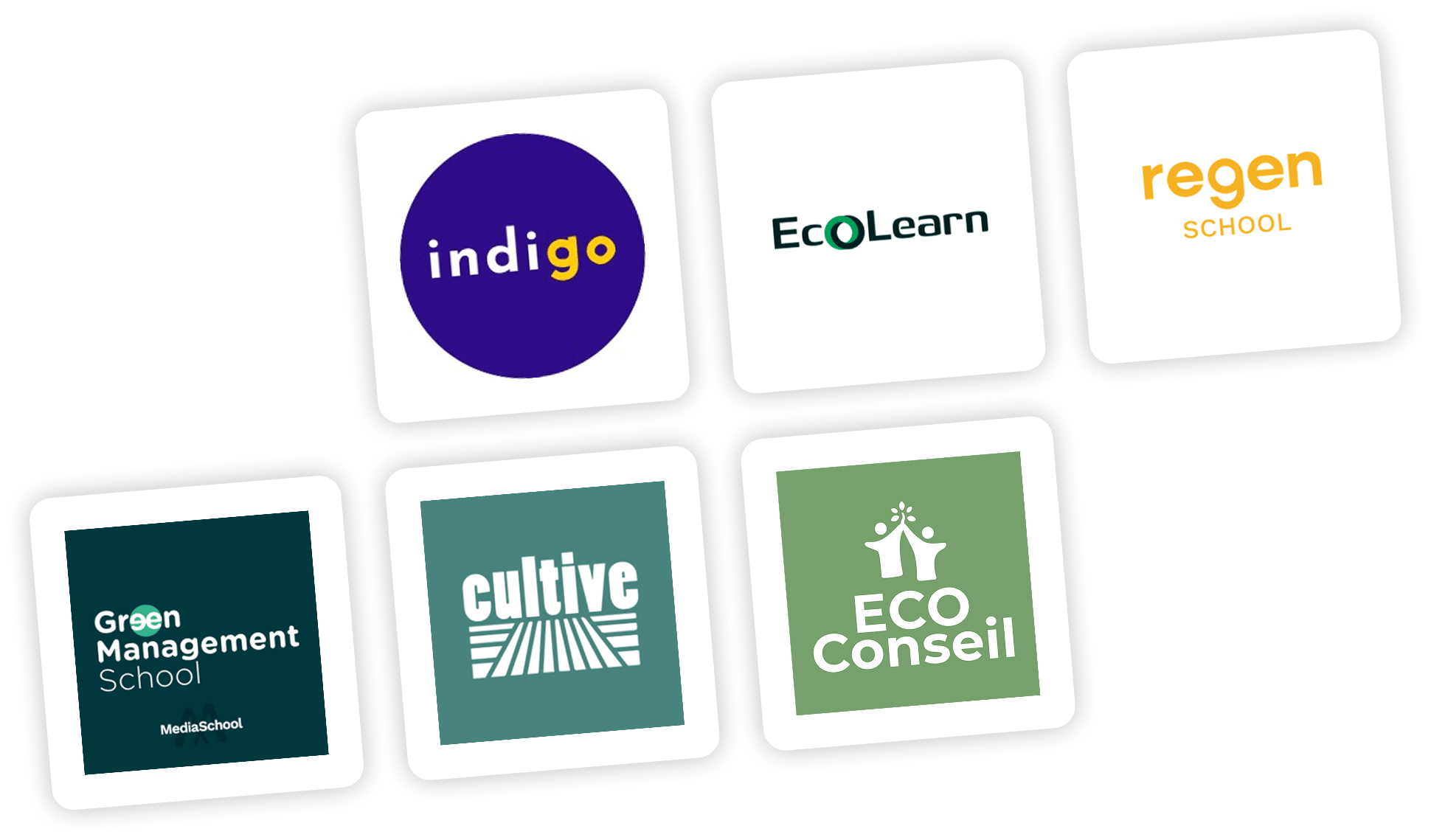HR - Recruiters' guide to gen Z
How easy will it be to recruit Generation Z in 2024? For Elisabeth Soulié, an anthropologist who has studied this new generation arriving on the job market, it is necessary to understand them in order to attract their attention, recruit them and build their loyalty. In an interview, in addition to her keys to understanding gen Z, she provides some answers for HR to help them recruit !

27% of Generation Z will make up the corporate workforce by 2025. What would a Gen Z-run company look like?
Today, departments are separated, often still in silos. A company managed by Gen Z will be more horizontal, agile and focused on collective intelligence. The hackathon method is an interesting way of understanding the expectations of Generation Z: there's the search for innovative solutions, a short timeframe that paces and stimulates work, the synergy of different backgrounds, talents and skills, and an emphasis on collective dynamics!
Is the executive contract still suitable for Generation Z? Still desirable?
No. Even the notion of a contract, of a permanent contract, is less and less so. Of course, there are still some who want to be permanent employees, but more and more young people are going freelance, mixing and matching different types of contract. I've met young people who are incubated within their companies to work on other personal projects. Companies prefer to incubate them, not only to keep their young talent, but also to feed off what these projects bring.
How can the company adapt its management?
Generation Z wants to recreate the bond. Today, to adapt, management must hyper-personalize the link. Brands are personalizing their products for this generation, and the same applies to the company. How are we going to work together? How will we live our relationship?
Well-being is also very important for this generation, who leave the company if they don't feel well. As a manager, you therefore need to ask questions regularly about your feelings and well-being: how do you feel on a scale of 1 to 10? What can I do to make you feel better? Can the team do anything for you ?
Another thing to know: gen Z no longer values expertise, but experience. This means that authority is granted to the manager, as long as a relationship of trust is created and the person is fully involved in bringing the team to life.
Last but not least, Gen Z can evolve within the company and needs to be supported in their career paths. The questions managers can ask are: how do you want to evolve? What skills do you want to develop? This generation is looking for a wide variety of experiences, rather than to move up the career ladder;
What would be an ideal layout to encourage collaboration?
I don't know if there's an ideal place. For example, I recently did some ethnographic work in a third-location space, and there's an intelligence about places, with spaces reconfiguring themselves according to how they're used. The kitchen, for example, could be a place for team meetings, or a space in which a "start-up" could receive its financiers. A larger space could be used for team meetings, festive events or the presentation of a collection. Generation Z doesn't want to be alone, it needs physical places to be: the office is a "den". When they telework, they go to cafés, coworking spaces and third places. We need spaces in companies that create the conditions for collaboration and living together.
How to adapt the recruitment process
In some companies, it takes far too long. Sometimes it lasts 3 months or even 6 months. Except that after 1 month, if the young person hasn't heard from you after an interview, he'll have left and won't be joining your company. In regular interaction with HR, I militate in favor of Z recruitment being partly done by Zs, because they know the codes, the channels, the networks? Collective interviews are also relevant: hackathons, training courses such as Ecole 42 or Le Wagon, for example, rely precisely on collective dynamics to assess a person.
For me, we also need to focus on growth potential rather than skills in the hiring process. A young Generation Z employee wants the company to help him or her grow. They see themselves as an added value to the team, and know that their presence will create a different kind of synergy. This is the systemic approach. When one element of the system moves, everything moves.
How do you retain this generation?
By giving priority to well-being and connection.
Young people will remain loyal to their team and their manager as long as their well-being indicator is positive. We need to position ourselves within a relational pact, and ask ourselves the question of co-evolution and co-evaluation. Evaluation is still too individual in the company, even though the Z generation sees itself above all as a community, a collective. Gen Z is loyal to the human element, to the quality of relationships - that's what's important to them.
Contribution, the feeling of taking action
Generation Z wants to be asked their opinion, to be taken into account, just like other employees. She gives the example of a young person who expressed his satisfaction at working in a startup that gives importance to everyone's opinion: "I'm asked for my opinion, on strategy. If I propose an idea, a project, they ask me what resources and who I need to set up my project, then we do a test and learn to see if we're pushing the idea, if the project is viable." Generation Z expects this active participation in corporate life and strategy.
Involving them in their career paths
Within a company, Z employees need to be listened to, and to be involved in their often multiple career paths. They need to be stimulated, and get bored quickly. Asking them what they want when they're feeling less motivated, what assignments they'd like to do, what skills they'd like to develop, what training they'd like to take, helps to involve them and make them more autonomous
"It would be great if there were young people in all the codir, because this generation brings a new breath and a new vision of the world with it."
Is it up to companies to adapt, or up to young people?
In my opinion, companies are going to have to adapt to attract, manage and retain this generation. How can they do this? By establishing a constant, informal dialogue, thinking of the company as a tribe, and developing shared values. The mid-year interview, for example, is nonsense, because the dialogue must be continuous. Feedback must be regular and affective"when I work with you, I feel happy because I find that you are very autonomous and...". Of course, this isn't necessarily obvious to older generations. A manager told me recently : "we weren't taught to express our feelings." Generation Z is changing the rules, and as I see it, establishing this ongoing dialogue, this exchange without tongue-in-cheek would enable all generations to grow, and avoid the staggering expenses companies spend on QWL (Quality of Life at Work). It's important to remember that most problems in the workplace are relational. I also think it would be a good thing if there were young people on every board of directors, as this generation brings with it a new breath of fresh air and a new vision of the world.
What are the mental barriers of the older generation to trusting gen Z?
A lack of understanding of Generation Z. There are a lot of prejudices about this generation, because it is, admittedly, destabilizing, it questions the existing: the "we've always done it this way" is no longer self-evident. Neither does "I have authority over you", from the moment she questions authorities of status and function and vertical hierarchies, especially if decisions are not considered fair or legitimate by her. She is said to be selfish. Narcissistic perhaps, but not selfish. She's altruistic.
5 tips for recruiters
#1 Creating and maintaining links throughout the recruitment process.
#2 Do qualitative onboarding. Show them that they add value to the team and the company right from the onboarding stage.
#3 Involve young people in their onboarding process by having them give an astonishment report or even offer to give initial feedback and recommendations.
#4 Ask young people what they want to learn beyond the skills they already possess, because they expect the company to help them grow..
#5 While the person is in the company, receive feedback on their state of well-being, whether informally or continuously;
Finally, perhaps we don't understand each other across the generations, because we don't put the same definition behind each word. Whereas the altruism of the older generation meant "giving everything to the company", the altruism of the younger generation focuses more on the quality of the links forged internally. Commitment isn't about staying with a company for 10 years or for life; it's about getting involved and staying motivated during working hours. For Elisabeth, to recruit this generation, you have to understand them. And to understand them, you need a new dictionary and new glasses!
—
Recruit talent committed to your raison d'être
jobs_that_makesense is the n°1 site for candidates who want to give meaning to their work. Advertise to 200,000 committed candidates, and join a community of over 7,000 HR professionals in the impact ecosystem!
—
TO FIND OUT MORE
👉 Does gen Z no longer want to work or work differently?
👉 Shared governance, the example of makesense



